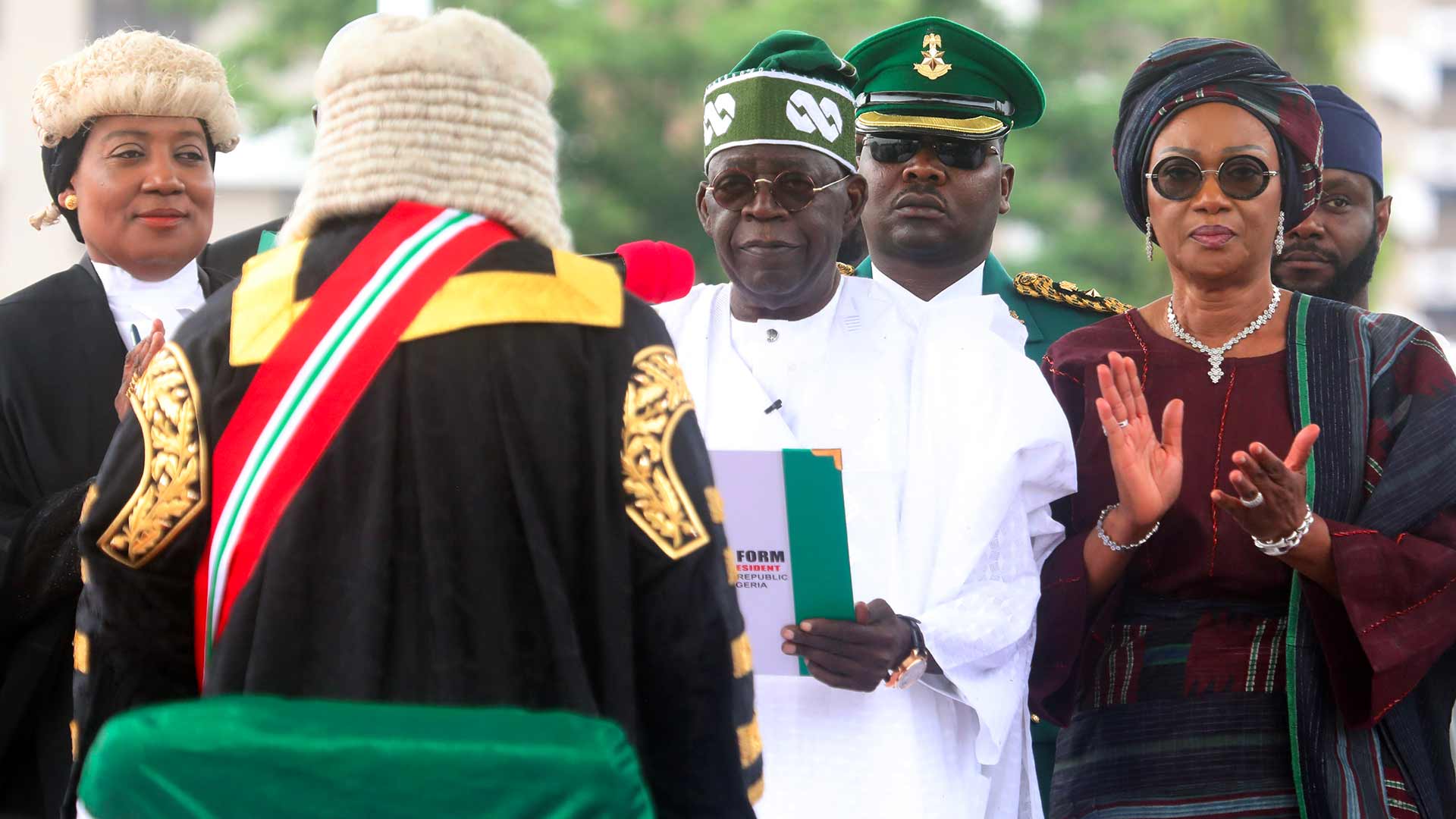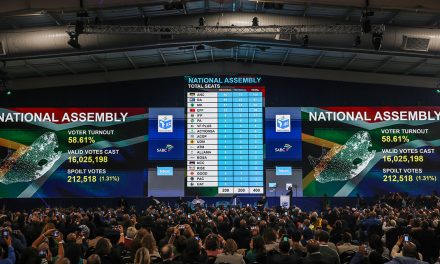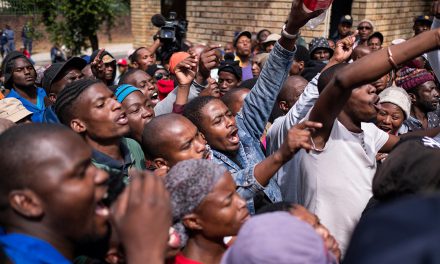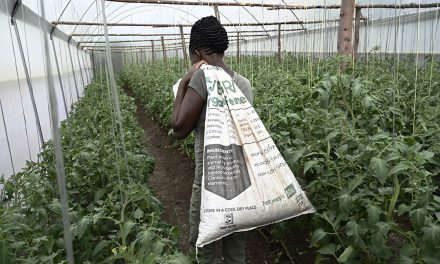When Bola Ahmed Tinubu took over Nigeria’s presidency on May 29 this year, the outlook for the country was broadly dire. He has since asserted himself as the bold reformer many expected him to be with an astute appetite for ringing radical economic changes. Even fierce critics are applauding his decisiveness. In short order, he removed the decades-old fuel subsidy that has drained billions of dollars from the budget and pushed towards the unification of the multiple exchange rates favoured by his predecessor which fed corruption whilst deterring investors.
Prioritising those corrections – also widely applauded by multilateral lenders, such as the World Bank and the International Monetary Fund – will go a long way in improving macroeconomic stability. Not to talk of the brighter climate for both domestic and foreign direct investments. In February, we recommended that Nigeria’s next president urgently address those two issues. Without this, it would be impossible to turn the tide on the country’s economic downward spiral during President Buhari’s two terms in office.
The oil subsidy bill and the rampant corruption around it was a key driver of Nigeria’s ballooning debt, with fiscal receipt recently eclipsing the national debt service spend. On the investment side, concerns about getting earnings out amidst shrinking dollar supplies prevented many potential investors from pursuing opportunities in the country. Following Tinubu’s interventions, Africa’s largest market has become more attractive again. This is good news.

Nigeria’s President Bola Tinubu (C) takes the oath of office during his inauguration ceremony at Eagle Square in Abuja, Nigeria on May 29, 2023. Tinubu has promised to unite Africa’s most populous nation and tackle insecurity as a “top priority”. The 71-year-old succeeds 80-year-old former army general Muhammadu Buhari of the same party, who stepped down after two terms in office, leaving a country facing a sea of economic troubles and security challenges. Photo: Kola Sulaimon/AFP
However, it is only one side of the story. In the short term, key reforms are inflicting additional hardship on ordinary Nigerians, many of whom are already facing harsh living conditions. Even by conservative measurements of US$1.90 daily spend as per the World Bank, an estimated 100 million Nigerians were living in extreme poverty in 2022. This is close to 45 percent of the population. Tinubu’s removal of the fuel subsidy triggered an immediate near threefold jump in petrol prices and a spike in transportation costs. The depreciation of the Naira is feeding inflation, which reached an 18-year high of 22 percent in May 2022. This pushes up the cost of living.
The legacy of misguided policymaking, corruption, and waste through the past administrations also lingers. For example, interventions, such as former President Muhammadu Buhari’s introduction of new Naira notes in November 2022, are often politically motivated. The Naira shortage induced by the currency swap made life near impossible for millions of citizens, whilst delivering no economic benefit. Speaking at a recent event convened by the Lagos State Government at the Lagos House, Marina, Tinubu explained: “We need to take the steps to stop the bleeding of our finances through speedy action on fuel subsidy. We have no choice.” This is the right course, but will the gains arrive quickly enough?
Careful balancing
For the Tinubu administration, the next question is not only how to best sequence future reforms and policy interventions to tackle Nigeria’s structural issues. Lifting the country onto a more prosperous and sustainable development path is difficult enough especially in an inert system designed to benefit a few. The President’s greater headache might be how to build and sustain the required buy-in and support of the broader population for painful but necessary reforms. Investments in education, for example, can take up to a generation to materialise, though there are lower-hanging fruits too, such as improvement in agriculture, access to healthcare, job creation, and very importantly governance.
The government must calibrate its interventions carefully. It should start by building safeguards around the proposed transfer of 8000 Naira monthly to 12 million households to ensure this reach the most vulnerable. Recent data suggest the masses might exercise patience with the new government. For the second quarter of 2023, the Armed Conflict Location Event Data (ACLED), an organisation that systematically tracks violence, recorded a total of 140 protests and 59 rioting events across the country, a combined 35% decrease compared to the first quarter of 2023 (184 and 121 events respectively) and fewer events than in the same quarter in 2022 (330 events).
In the future though, people might take less kindly to reforms. Nigerians need to see reform dividends as quickly as realistically possible. Living standards must improve. In short, the government needs to deliver, and it needs to walk the talk of its announced ‘open door policy’. In addition, the President needs to send a strong signal that he isn’t only pushing the poor to sacrifice for potential future gains but that this administration is also cutting waste at the top.
Tough but doable
Pushing Nigeria onto a more prosperous path is difficult but not impossible. Tinubu’s plan, ‘Renewed Hope: An Action Plan for a Better Nigeria’, is a decent start. It could provide a useful roadmap if underpinned with the necessary leadership, resources, and capacity to implement. Tinubu’s priorities spelled out in his May 29 inaugural address, speak to the heart of Nigeria’s structural challenges. These include boosting local manufacturing, improving access to electricity, and making it more affordable, as well as increasing investments in road, rail, and port infrastructure, amongst others. Tinubu must oversee targeted investment in human capital by using the savings from the fuel subsidy removal which gulped USD10 billion in 2022 alone.
We wrote extensively about why investment in human capital is key for Nigeria’s broader development prospects, through health (including access to safe water and improved sanitation), education, and training. After all, only a healthy and skilled workforce can be truly productive and transformative. Increasing public revenue will be key to ramping up investment in these and other public goods.
Growth with inclusion
President Tinubu has pledged to double the economic growth rate to six percent or more. This is essential to reduce poverty. On the current demographic and economic trajectory, it is an uphill battle as the number of poor is set to increase. According to the International Futures system, an integrated modelling platform housed at the Frederick Pardee Centre for International Futures at the University of Denver, by 2040, close to 12 million people could live on less than US$1.90 a day, up from about 100 million at present.
Historically, greater economic growth has often not benefitted poor Nigerians due to its oil-driven nature (commodity super cycle) and entrenched inequalities. Notably, this was the case during the Jonathan administration when growth averaged about 6-7 percent per annum but did not lead to significant reductions in poverty or job creation. During the Buhari administration, growth was so meagre (1.35 percent per annum on average across his two 4-year terms) that there was nothing to trickle down in the first place. GDP per capita (at purchasing power parity) had been falling even before the Covid-19 pandemic. When Tinubu took over, it was about 12 percent lower than in 2015.
During their respective poverty-reducing decades, both China and India grew at an average annual rate of 11.5 and 8.4 per cent respectively. And even Indonesia’s economy expanded by an average of 3.5 per cent between 1998 and 2008. This allowed the country to lift over 80 million people from abject poverty.
Looking ahead
On the current evidence, Tinubu, Nigeria’s 36 state governors, and their top aides require sound, integrated planning on a scale and speed never before seen in Nigeria if they are to change the country’s fortunes. Future growth must come from economic diversification, including export diversification. Recent research by the African Futures Project shows that interventions in that cluster will likely benefit Nigerians the most in the longer term.
In the shorter term, investments in agriculture are a powerful way of lifting millions out of poverty. By recently declaring a state of emergency on food security and his intent to revamp agriculture more broadly, Tinubu sent another signal that his administration is aware of the sector’s importance. The country desperately needs reformers that will not shy away from transformative interventions. Will the new administration walk the talk of deep structural reform? Are Nigerians prepared to sacrifice yet again for the promise of greater prosperity for all?
In the end, only governments that deliver enjoy legitimacy. Without quick and tangible reform dividends, the country might struggle to regain traction.
Dr Julia Bello-Schünemann is a multilingual research consultant. She is versed in integrated forecasting across sectors (including demographics, infrastructure, economics, conflict and violence, etc.), trend and risk analysis, data analysis, policy advice for governments and international organisations. Her expertise straddles Africa, Latin America, the Caribbean, and the European Union. She possesses vast experience in project management, fundraising, strategic planning, multi-stakeholder consultations, training and facilitation. She is currently an Associate Senior Research Consultant with Good Governance Africa-Nigeria. She holds a PhD in International Relations from the Complutense University Madrid, Spain and an MA in Communication, Political Science and Economics from Ludwig-Maximilians-University, Munich in Germany.







